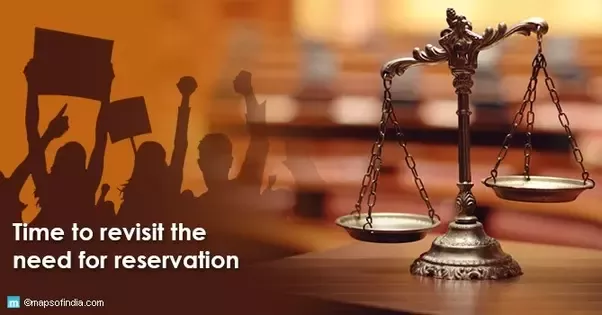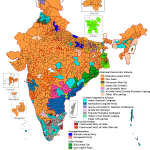The constant political exploitation of the reservation policy, framed in 1950, threatens to further divide the country not only on the caste and sub-caste lines, but also on their extension to rope in religions. As the situation stands today, Dr. Bhim Rao Ambedkar, the author of the reservation policy, would have been ashamed of his radical initiative intended to annihilate the caste system itself. Ambedkar, who framed the country’s Constitution, was an intense fighter in the cause of annihilation of caste. The social reformer saw education as a potent tool that could equally empower every citizen to build an egalitarian society as also to help break the age-old restrictive shackles of discriminatory social practices. It did not happen in the absence of a uniform and universal education system. The reservation policy has become a powerful tool of politicians to keep dividing the country’s poor.
Last month, Karnataka’s BJP government had, at first, scrapped four percent reservation quota of OBC Muslims and later under pressure told the Supreme Court that the state will not scrap the Muslim quota till May 9, a day before the assembly election, when the court is scheduled to hear the petitions. There are 17 sub-castes with Muslims under the backward classes in the categories of 1 and 2A. The state government decided to scrap four percent OBC reservation for Muslims and moved them to the 10 percent economically weaker section (EWS) category. Thanks to the constant political interpretation and reinterpretation, the reservation policy as it stands now is getting more and more complicated.
Honestly, It’s high time to dump the reservation policy itself which was originally intended exclusively for scheduled caste and scheduled tribe (SC/ST) communities but widened later to cover other backward communities (OBCs) and economically weaker sections of the society under its ambit. The policy has failed to achieve its purpose. Instead, it has become a forceful political instrument to keep alive caste-based politics forever. Initially, the reservation was intended only for SC/ST communities and that too for a period of 10 years (1951-1961). But, it has been getting extended ever since. The policy has hardly uplifted the life of a vast section of the communities it was designed to serve. Unfortunately, a small economically better-off section among those communities have been taking maximum advantage of the policy to create its own class.
Last year, the union government notified a commission under former Chief Justice of India and former chairperson of the National Human Rights Commission (NHRC) K G Balakrishnan “to examine the matter of according Scheduled Caste status to new persons, who claim to historically have belonged to the Scheduled Castes, but have converted to religions other than those mentioned in the Presidential Orders issued from time to time under Article 341 of the Constitution”. The benefits of reservation are available only to Dalit Hindus, Buddhists, and Sikhs although originally Hindus promoted casteism since the Vedic period typically dividing them among four classes of people — Brahmins, Kayasthas, Vaishyas and Shudras. Now, several petitions are pending before the Supreme Court seeking reservation benefits for Dalits who converted to Christianity and Islam.
The reservation system provides quota to the backward classes of the country in terms of education, jobs, and politics. It allows the government to create reserved quotas or seats for “socially and economically backward persons” based on constitutional provisions that lower the criteria required in tests, job vacancies, and other situations. The Constitution (Scheduled Castes) Order, 1950, as amended from time to time, clarified that no person professing a religion other than Hinduism or Sikhism, or Buddhism can be deemed to be a member of Scheduled Caste. However, there is no religious bar for treatment under OBC. Converted Sikhs were included to the Scheduled Castes group in 1956, and Buddhists were added in 1990.
Ironically, mere conversion to Islam or Christianity in India did not do away with caste-based discrimination for the converts. The 1911 Census listed some 102 caste groups among Muslims in Uttar Pradesh. Around 97 of them came from the non-Ashraf category. Many people belonging to Khan, Sheikh, Syed, and Pathan sects keep away from the Nat, Pamadiya, Halalkhor, Bhangi, Bhat, and Dhobi Muslim communities. In several states, mosques and cemeteries are different for Dalit and non-Dalit Muslims. Similarly, there are separate churches for Dalit and non-Dalit Christians in Gujarat, Kerala, and Tamil Nadu. In Kerala, the religion of Christianity is less followed from the bible and more from the caste consciousness. In Goa, reference to ‘Catholic Brahmin’ as the background of brides or grooms is still common in matrimonial ads. Now, the country’s Dalit Muslims and Christians want reservations on the caste lines similar to those among Hindus, Sikhs and Buddhists.
In 2007, reservation was implemented in the All India Quota Seats in which 15 percent seats were reserved for SC category and 7.5 percent for ST category. On 14 January 2019 when the 103rd Constitutional amendment was enforced; 10 percent reservation was given to the Economically Weaker Section in the general category under articles 15(6) and 16(6) of the Constitution. Reservation for the EWS category was given over and above the existing 50 percent reservation for SC/ST/OBC categories. In July, 2021, the government decided to provide 27 percent reservation for OBCs and 10 percent reservation for the Economically Weaker Section in the All India Quota Scheme for undergraduate and postgraduate medical/dental courses.
The way the political campaigns for the expansion of the sphere of caste-based reservations have been continuing over the years, it would appear the system will never end and Ambedkar’s dream of ‘annihilation of caste’ will never come true. The system is unjust. It has undermined the economic criteria and divided the poor on the basis of castes. It ignored the fact that a uniform education and social system with the full support and commitment from the government alone can uplift the poor. Last year, the Supreme Court delivered a split 3:2 verdict in favour of the 103rd Constitutional Amendment vindicating that economic conditions are a viable classification of granting reservations. The apex court also felt that the reservation policy cannot stay for an indefinite period. Justice P.B. Pardiwala, who strongly supported the EWS quota, rightly said that the real solution lies in eliminating causes that have led to the social, educational and economic backwardness of the weaker sections of the community.
However, the matter does not seem to have ended with the majority judgement of the Supreme Court bench on the constitution amendment. Two of the honourable judges — the then Chief Justice of India U.U. Lalit and Justice Ravindra Bhat — dissented. Justice Bhat’s dissenting opinion laid bare the message of a quota which absolutely did not recognise Scheduled Castes and Scheduled Tribes, or the Other Backward Classes. Justice Bhat examined the equality code of the constitution and how – while intrinsic to the basic structure of the constitution – a reservation for equality cannot mean the economic advancement of the same group. Thus, the controversy over the reservation policy is unlikely to end anytime soon. It is to be seen now how the apex court handles the petitions of Dalit Muslim and Dalit Christian communities seeking reservation on the lines of those from Buddhist and Sikh communities. (IPA Service)

 BJP Can Be Restricted To Below 160 Seats In 2024 Lok Sabha Elections
BJP Can Be Restricted To Below 160 Seats In 2024 Lok Sabha Elections 